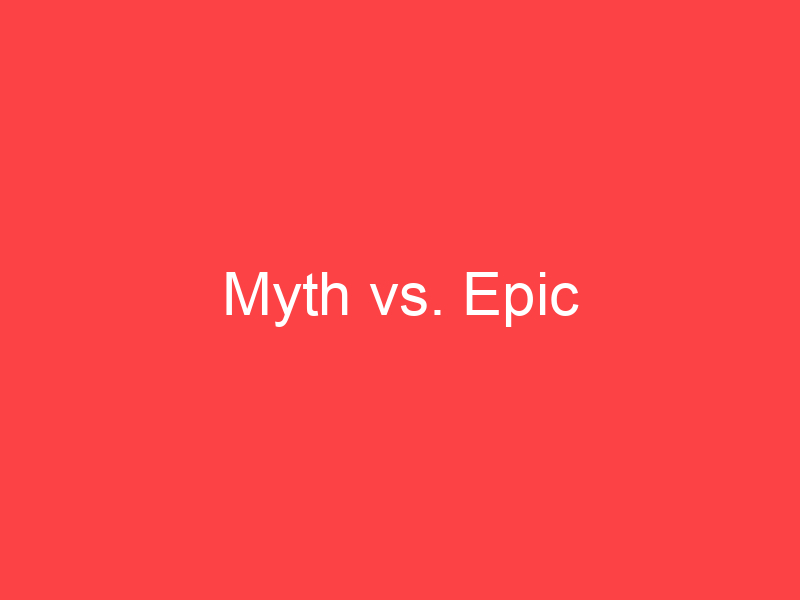-
Myth
Myth is a folklore genre consisting of narratives or stories that play a fundamental role in a society, such as foundational tales or origin myths. The main characters in myths are usually gods, demigods or supernatural humans. Stories of everyday human beings, although often of leaders of some type, are usually contained in legends, as opposed to myths.
Myths are often endorsed by rulers and priests or priestesses, and are closely linked to religion or spirituality. In fact, many societies group their myths, legends and history together, considering myths and legends to be true accounts of their remote past. In particular, creation myths take place in a primordial age when the world had not achieved its later form. Other myths explain how a society’s customs, institutions and taboos were established and sanctified. There is a complex relationship between recital of myths and enactment of rituals.
The study of myth began in ancient history. Rival classes of the Greek myths by Euhemerus, Plato and Sallustius were developed by the Neoplatonists and later revived by Renaissance mythographers. Today, the study of myth continues in a wide variety of academic fields, including folklore studies, philology, psychology, and anthropology. The term mythology may either refer to the study of myths in general, or a body of myths regarding a particular subject. The academic comparisons of bodies of myth is known as comparative mythology.
Since the term myth is widely used to imply that a story is not objectively true, the identification of a narrative as a myth can be highly political: many adherents of religions view their religion’s stories as true and therefore object to the stories being characterised as myths. Nevertheless, scholars now routinely speak of Christian mythology, Jewish mythology, Islamic mythology, Hindu mythology, and so forth. Traditionally, Western scholarship, with its Judaeo-Christian heritage, has viewed narratives in the Abrahamic religions as being the province of theology rather than mythology; meanwhile, identifying religious stories of colonised cultures, such as stories in Hinduism, as myths enabled Western scholars to imply that they were of lower truth-value than the stories of Christianity. Labelling all religious narratives as myths can be thought of as treating different traditions with parity.
-
Myth (noun)
A traditional story which embodies a belief regarding some fact or phenomenon of experience, and in which often the forces of nature and of the soul are personified; a sacred narrative regarding a god, a hero, the origin of the world or of a people, etc.
-
Myth (noun)
Such stories as a genre.
“Myth was the product of man’s emotion and imagination, acted upon by his surroundings. (E. Clodd, Myths & Dreams (1885), 7, cited after OED)”
-
Myth (noun)
A commonly-held but false belief, a common misconception; a fictitious or imaginary person or thing; a popular conception about a real person or event which exaggerates or idealizes reality.
-
Myth (noun)
A person or thing held in excessive or quasi-religious awe or admiration based on popular legend
“Father Flanagan was legendary, his institution an American myth. (Tucson (Arizona) Citizen, 20 September 1979, 5A/3, cited after OED)”
-
Myth (noun)
A person or thing existing only in imagination, or whose actual existence is not verifiable.
-
Epic (noun)
An extended narrative poem in elevated or dignified language, celebrating the feats of a deity, demigod (heroic epic), other legend or traditional hero.
“The Icelandic epic took all night to recite.”
-
Epic (noun)
A series of events considered appropriate to an epic.
“The book was an epic in four volumes.”
-
Epic (noun)
In software development, a large or extended user story.
-
Epic (adjective)
Of, or relating to, an epic.
“Beowulf is an epic poem.”
-
Epic (adjective)
Momentously heroic; grand in scale or character
“The epic defense was rewarded with the highest military decorations”
-
Epic (adjective)
Extending beyond the usual or ordinary; extraordinary, momentous, great, or cool.
“The after-prom party was truly epic.”
-
Epic (adjective)
That is an epimorphism.

